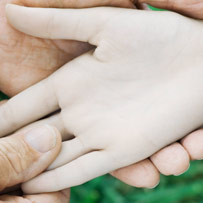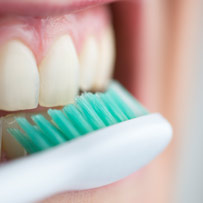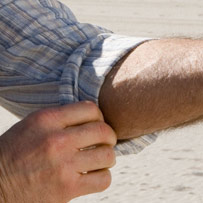Body Image and Dialysis
Chronic Kidney Disease (CKD) can bring about certain physical changes. No matter what they may be—and there can be many—you are still you at the core. Getting tips on how to handle these changes can help you stay focused on what’s most important: your personality and attitude. Talk to your social worker, dietitian or doctor about any body image issues you may experience.

Common body image issues with CKD

Skin changes
Waste products that your kidneys are no longer able to remove can cause changes in your skin color and texture. If you have light skin, it may look gray or yellowish in color. If you have a darker skin complexion, you may see it getting slightly darker.
Itchy skin
Many people on dialysis have itchy skin (also known as pruritus)—usually on the back, chest, head, arms or legs.
- The kidneys have trouble balancing certain minerals like calcium and phosphorus. Phosphate binders are medicines that can lower phosphate levels and may ease the itching.
- Low calcium levels can trigger the parathyroid glands to release a hormone that may cause itching. Removing some—but not all—of the 4 parathyroid glands can reduce itching.
Another way to ease itchy skin is with ultraviolet light. You could spend some time in the sun or with a therapeutic lightbox, which uses fluorescent light. Yet another option is to use an antihistamine, which can ease itching from many causes.
There isn’t a single answer for everyone, so speak with your doctor or nurse to explore what may help you.
Fragile skin
Dialysis can also cause your skin to become thin and fragile. It may also tear, causing purple sores that heal slowly. This is called pseudoporphyria. If this happens to you, it’s best to see a dermatologist, who may be able to help.
Time will help
The more time you spend on dialysis, the better your skin will look. After a kidney transplant, your skin may even return to the way it was before you had CKD.


Ammonia breath
Freshen your breath by:
- Brushing your teeth, gums and tongue several times a day
- Flossing every day
- Carrying a sample size of mouthwash in your bag
Dry mouth is also common for people on dialysis. Sucking on ice chips or sugar-free candies can help.
It’s also very important to visit your dentist for checkups on a regular basis. Dental hygiene can play a role in your overall health.

Hair changes

Weight gain or loss

